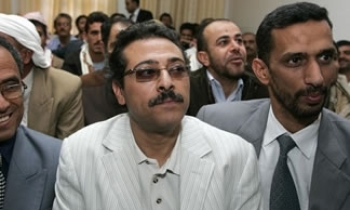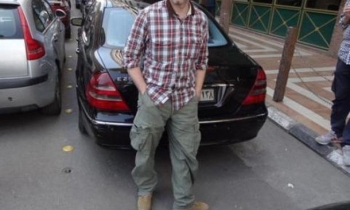Ten suspects have been arrested in the October 2006 assassination in Moscow of investigative reporter Anna Politkovskaya.
Russian Prosecutor-General Yuri Chaika told reporters Monday that the detained suspects include current and former police and Federal Security Service (FSB) officers, along with members of a criminal gang that “specialises in contract killings” and is led by a Chechen crime boss. He did not identify the suspects by name. Russian authorities detained the suspects between August 15 and 23, and the Basmanny Court of Moscow approved the arrests Monday, according to local news reports. Chaika said the suspects would be formally charged soon.

Chaika suggested that the murder plot was hatched overseas “to destabilise the situation in Russia, discredit the authorities and change the constitutional system,” according to news agency Itar-Tass. He did not identify the alleged masterminds, and authorities have not moved publicly to arrest such individuals.
Politkovskaya, an internationally known reporter for the Moscow newspaper Novaya Gazeta, was killed by a lone gunman in the elevator of her apartment building on October 7, 2006.
“While these arrests are a welcome development and mark progress in the investigation of Anna Politkovskaya’s murder, Russian authorities must make more information about the case public as soon as possible, including naming the suspects and identifying the masterminds behind this terrible crime,” Committee to Protect Journalists (CPJ) Executive Director Joel Simon said. “Transparency should be an integral part of this high-profile investigation. Solving Politkovskaya’s murder and the 13 other unsolved work-related killings of journalists since 2000 would help reverse impunity.”
“We hope this announcement has not been made solely to defuse the protests of NGOs and questions from journalists who want the case solved,” Reporters sans Frontières (RSF) said. “We have in the past seen announcements by the Russian authorities that have been made just for effect. And most of the investigations into the murders of journalists have never been concluded.”
“We are pleased that arrests have been made,” said International Federation of Journalists (IFJ)General Secretary Aidan White. “But like our colleagues in Russia we are anxious for more information. We need to know that not only the hired killers of Anna Politkovskaya are brought to justice, but also those who ordered her assassination.”
Dmitry Muratov, editor of Novaya Gazeta, told CPJ that the arrests appear to be “justified” but speculation about the purported overseas plot was premature. An editorial in Novaya Gazeta said Monday: “There are no guarantees that the real masterminds will be those convicted.”
RSF said, “We are concerned that unnamed persons ‘outside Russia’ have been identified as the masterminds of Politkovskaya’s murder. Contrary to what the prosecutor-general says, there were people inside the country interested in silencing her and the investigation should be looking into this.”
Two other reporters for Novaya Gazeta, a paper known for its hard-hitting journalism, have been killed for their work since 2000, according to CPJ.
Politkovskaya, 48, was best known for her investigative reports on human rights abuses committed by Russian military officers in Chechnya. In seven years covering the second Chechen war, Politkovskaya’s reporting repeatedly drew the wrath of Russian authorities. She was threatened, jailed, forced into exile, and poisoned during her career. Her last, unfinished story was about alleged torture of Chechen civilians by Kremlin-backed local authorities.
Russia is the third-deadliest country in the world for journalists over the past 15 years, behind only the conflict-ridden countries of Iraq and Algeria, according to CPJ. Fourteen journalists have been killed since 2000 alone, including American journalist Paul Klebnikov. None of the cases since 2000 have been solved.
Acording to IFJ, 255 journalists and media staff have been killed in Russia since 1993. Many of these deaths have been explained, but since President Vladimir Putin came to power around 20 killings of journalists have taken place and none of them have been satisfactorily resolved. At its World Congress in Moscow in May, IFJ unanimously adopted a resolution calling for an immediate end to manipulation of journalism by private and political interests.
IFJ has developed a database on the killings of journalists in Russia since the early 1990s. Based on the work of Russia’s two media monitors, the Glasnost Defence Foundation and the Centre for Journalism in Extreme Situations (CJES), the IFJ database details when, where and how so many journalists and media workers have died or gone missing. The database can be accessed here.









